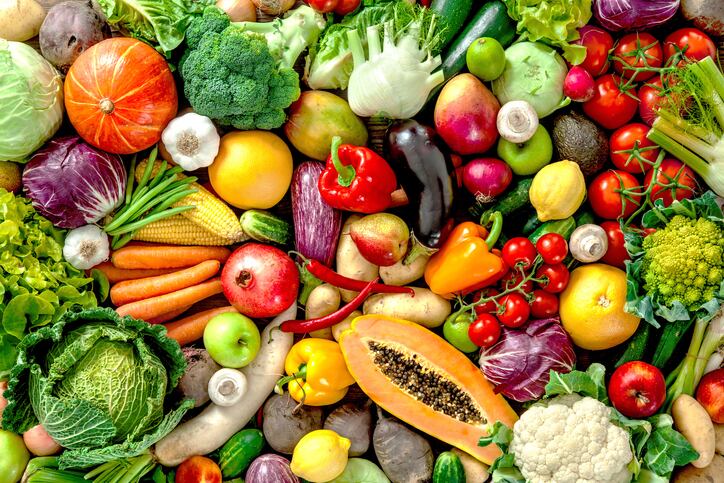The recommendation of 400 to 600 milligrams of flavanols per day to support cardiometabolic health aims to address the global health challenge around cardiovascular diseases - the leading causes of sickness and death globally.
Dr. Catherine Kwik-Uribe, VP scientific & regulatory affairs, applied science & nutrition, Mars Edge, says the recommendation, issued last week (October 11), is an exciting one for the industry.
“For over 20 years Mars scientists and others have been researching flavanols and how they can benefit human health. This recommendation is a significant milestone in this emerging area of nutrition.
"We hope that this recommendation prompts greater interest and awareness – from health professionals to consumers – on the significant role that flavanols can play in health and nutrition and furthers conversations that may soon lead to full inclusion into worldwide dietary guidelines.”
She adds that it is especially impressive that this recommendation has focused on promoting health rather than the prevention of a deficiency, the most common approach in making recommendations for such things as vitamins and minerals.
The recommendation manuscript states: "Moderate evidence supporting cardiometabolic protection resulting from flavan-3-ol intake in the range of 400-600 mg/d was supported in the literature. Further, increasing consumption of dietary flavan-3-ols may help improve blood pressure, cholesterol levels, and blood sugar. Strength of evidence was strongest for some biomarkers (i.e., systolic blood pressure, total cholesterol, HDL-cholesterol, and insulin/glucose dynamics).
"It should be noted that this is a food-based guideline and not a recommendation for flavan-3-ol supplements. This guideline was based on beneficial effects observed across a range of disease biomarkers and endpoints. While a comprehensive assessment of available data has been reviewed, evidence gaps identified herein can inform scientists whereby guiding future randomized clinical trials."
These recommendations have come into place relatively quickly considering how recently flavanols came onto the health and nutrition radar, Dr Kwik-Uribe notes.
“It is amazing to think how quickly (but not easily!) we arrived at an official recommendation," she told NutraIngredients, "while our understanding of vitamins and minerals and their importance to health has been understood for well over 50 years, flavanols — though long known to be in foods we eat — have only recently come onto the nutrition scene.”
Scientific discoveries
Over the past few decades we have seen significant advancements in analytics, global food composition databases, and comprehensive studies on the absorption-metabolism of specific flavanols, with hundreds of human intervention studies using flavanols.
For example, COSMOS is the first and largest randomised, controlled trial on flavanols and cardiovascular health that was published this year.
A recent publication on the European Prospective Investigation into Cancer (EPIC) Norfolk cohort that examined the relationship between flavanol intake and blood pressure found that the top 10% of the population had a mean flavanol intake of 270 mg/d (with a range of 146-618 mg/d). It is important to note that, in this same study, when a validated biomarker of flavanol intake was used, those participants with the highest flavanol intake had systolic blood pressure that was 2-2.5 mmHg lower than those in the bottom tier of intake (with similar differences found for diastolic blood pressure) — quite a profound reduction in blood pressure.
Dr Kwik-Uribe says the new recommendation is a fair reflection of the available science.
“Considering the available evidence on flavanols, including the profound outcomes of the recently published COSMOS trial, this recommendation is consistent with the evidence and very realistic from a dietary perspective. As a first recommendation, this is a great start. Recommendations will evolve over time, both in specificity and in recommendations on how to achieve levels, but the current recommendation is a major step forward in recognizing the health benefits of flavanols.
“The good news: Flavanols are found in a variety of foods — including teas, berries, pome fruits and nuts —, so by making small changes to their diet, consumers can easily begin to increase flavanol intake.”
Mars Edge
Mars Edge is a segment of Mars, Incorporated dedicated to human health and wellness through targeted nutrition.
The business is creating new ways to make, market, sell and distribute new consumer product solutions and services that address malnutrition, personalized nutrition and healthy aging.
Currently the team is focused on bioactives, and specifically its dietary supplement COCOAVIA, leveraging over 20 years of research into cocoa flavanols to create evidence-based products that support healthy blood flow.
It is also building a global Personalized Nutrition business starting with our partnership with foodspring –one of Europe’s largest and fastest growing direct-to-consumer targeted nutrition companies.
Source: Advances in Nutrition
https://doi.org/10.1093/advances/nmac105
"Flavan-3-ols and Cardiometabolic Health: a Guideline Recommendation by the Academy of Nutrition and Dietetics"
Authors: K.M. Crowe-White, et al.


